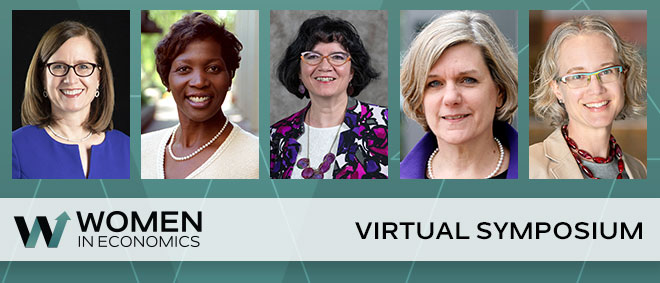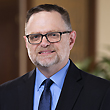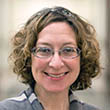Inspiring Young Women to Pursue Economics
Women have been historically underrepresented in the economics field. That is why, toward the end of an economically challenging year, President-Elect Joe Biden and Vice President-Elect Kamala Harris made news for selecting several women for key economic roles. This included former Federal Reserve Chair Janet Yellen as Treasury secretary, who would be the first woman to lead the U.S. Department of the Treasury.
But the underrepresentation of women in economics overall doesn’t tend to grab big headlines. It starts at a much different place than a presidential administration: researchers note that this gap begins at the undergraduate level and carries forward into careers.See The St. Louis Fed’s Focus on Women in Economics, a 2019 essay by St. Louis Fed President James Bullard, for several recent studies.
Changing that takes work, says St. Louis Fed Economic Education Officer Mary Suiter. She studied econ in college before earning advanced degrees in economic education, curriculum and instruction.
“We want students to know the field is for everyone,” she said.
Women in Economics Symposium 2021: A Virtual Event
The free Women in Economics Symposium will run 6 to 8 p.m. Central on Feb. 17 and 18. Participants will network, hear insights from leading economists, and enjoy smaller panel discussions with Q&A.
To that end, Suiter’s team is gearing up for the Women in Economics Symposium in February. This event, now in its fourth year, is designed to inspire young women and underrepresented minorities who may be interested in econ—and to encourage those pursuing a degree to persist.
For the first time, the free symposium will be held virtually, enabling it to expand to a larger national audience and to welcome high schoolers as well as college students. And participants have a lot to look forward to.
“They’ll network with prominent women making a difference, as well as with others studying economics—hopefully creating connections that will support them in their careers,” Suiter said.
Hear Firsthand from Leaders in the Economics Field

From left, Brigitte Madrian, Lisa D. Cook, Marie T. Mora, Nancy Rose and Abigail Wozniak.
This year’s speakers have great personal and professional experience to share. Here is a glimpse of their insights.
Why It’s Vital to Encourage Women and Underrepresented Minorities to Pursue Economics
Lisa D. Cook serves as director of the American Economic Association Summer Program and is a professor of economics and international relations at Michigan State University. In November, she was selected to serve on the Biden-Harris transition team.
In a 2019 Women in Economics podcast interview, Cook noted the importance of diverse perspectives.
“I think the most succinct answer that I can give comes from not me, but from Janet Yellen,” Cook said. “It is her view that the lack of diversity contributed significantly to the financial and economic crisis. With people who thought the same way, were trained by the same people, trained by the same institutions, a lot of the questions that should have been posed were not being posed.”
She emphasized that “more information is better, and the more diverse people you can have who come to the economy in different ways, interact with the economy in different ways, the better off we'll all be.”
Symposium presenter Marie T. Mora is provost and executive vice chancellor for Academic Affairs and an economics professor at the University of Missouri–St. Louis. In a 2020 Women in Economics podcast interview, she said the opportunity to work on issues of diversity and equity, particularly among faculty, drew her to her current role.
“I think it's extremely important that we have more diversity in the profession, including in terms of having more women and also having underrepresented minorities, both men and women. And the reason is that as economists, a lot of the research that we do in an academic environment affects policy,” Mora said.
Economists, she said, believe that for markets to work, “we need perfect information. And so if we are driving policy based on imperfect information [because of the lack of diverse perspectives], we may not get the best policy for all.”
How Economics Can Affect Real-World Policies
If diverse viewpoints are vital to forming policies, what kinds of decisions can economics influence?
“Economics has been part of almost every policy conversation in the U.S.—and in many cases abroad, as well—for several decades now. In part, this is because economists are trained to be persuasive communicators,” noted 2021 symposium presenter Abigail Wozniak in an email interview. The senior research economist directs the Minneapolis Fed’s Opportunity and Inclusive Growth Institute.
“I think economists can now be helpful by sharing that communication advantage, in order to expand the evidence set that bears on public policy,” Wozniak added.
Also in an email interview, symposium presenter Brigitte Madrian, dean and Marriott Distinguished Professor at Brigham Young University’s Marriott School of Business, offered examples of where economics has impacted public policy issues, including on:
- Enacting the earned income tax credit in 1975.
- Deregulating airlines in 1978.
- Periodic revising of the consumer price index, which is the basis for inflation-adjustments for a large number of government programs and is also widely used in the private sector.
- Devising auctions to allocate spectrum rights to cell phone providers in the 1990s, when the market for cell phones was taking off.
- Welfare-to-work changes implemented in the mid-1990s.
- Key provisions of the Pension Protection Act of 2006, encouraging employers to automatically enroll employees into retirement savings plans.
- Tradeable emissions rights, which allow for environment improvements at a lower cost than through other mechanisms.
For more, Madrian suggests the book “Better Living Through Economics.”
Why One Class Can Make a Difference
The path to studying econ isn’t necessarily linear, as symposium presenter Nancy Rose discussed in a forthcoming podcast interview.
“Economics and I almost missed each other,” said Rose, who is the Charles P. Kindleberger Professor of Applied Economics at the Massachusetts Institute of Technology.
Rose had participated in high school forensics and debate; as a college freshman, she noted many debaters were signing up for an intro econ course. She did, too. After classes taught by grad students supplemented by mass lectures, Rose concluded that economics was fine, but not for her.
It wasn’t until later, having declared a government major, that her desire to someday analyze public policy led her to “dabble” in another economics class to round out her schedule. That class and a “fabulous” teacher changed her view of the subject.
“I began to see economics as a very powerful tool to understand behavior and make decisions,” Rose said. Another great class and instructor in her junior year spurred her to add an econ major.
Now an acclaimed educator herself, she has won awards for teaching, advising and mentoring. She incorporates games and team exercises when teaching undergrads and mixes modeling and empirics with discussions of topical issues. She also helps students see pathways into economics careers beyond academia, including government, industry and consulting.
How to Get Started in Economics
If you are passionate about something—health care, the environment, income inequality, education, starting your own business—studying economics can inspire new ways of thinking.
“The events of 2020 have tested the value of the economist’s way of studying the world and informing action,” said the Minneapolis Fed’s Wozniak. “I’m looking forward to being able to reflect and pull together those experiences into a (hopefully!) engaging keynote,” she said.
Cook, who leads the AEA summer program, said she tries to communicate to students that “you don't have to walk out of the womb knowing that you want to do a Ph.D. in economics. There are many different paths, and we try to expose [students] to many different paths. Many come to our program already having graduated from undergraduate, so they really can't rewrite their undergraduate record, but that's OK.”
As Mora noted, “Many people have a misconception about economics, which might be compounded if they don’t see economists who look like them. But economics is a very large umbrella—it covers topics and issues of interest for everyone.”
“If you’re on the fence, give it a try,” said Rose of MIT. “I think it is such an exciting time to be an economist. There is so much that we can contribute to the world, and we need you to be part of that mission and part of that movement.”
Note and Reference
1 See The St. Louis Fed’s Focus on Women in Economics, a 2019 essay by St. Louis Fed President James Bullard, for several recent studies.This blog explains everyday economics and the Fed, while also spotlighting St. Louis Fed people and programs. Views expressed are not necessarily those of the St. Louis Fed or Federal Reserve System.
Email Us



